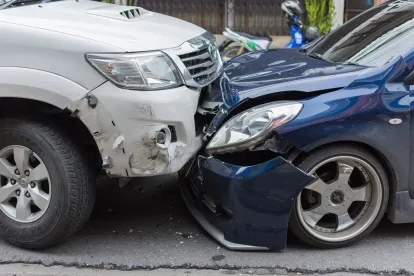Those who have been involved in a car accident know that the recovery process can be lengthy. However, every accident is different, and it can be difficult to know which pains are “normal” after an accident and which symptoms may be a sign of something more serious.
Minor injuries, such as scrapes and bruises, will heal within a week or two, but more serious injuries are a different story. In fact, it is common for car accident victims to suffer lifelong symptoms as a result of the accident, especially if they do not receive prompt medical care.
Types of Accident-Related Pain
In the moments immediately following an accident, pain is pain, and it will be difficult – if not impossible – to assess the severity of an injury. Of course, you may know if you’ve broken a bone or experienced a deep cut. However, not all injuries exhibit visible symptoms. The most important thing is to visit a doctor as soon as possible after the accident.
There are a few types of pain that you may experience after a serious car accident. These include:
-
Radiating pain – If you are experiencing pain but you can’t identify where exactly it is coming from, it is likely radiating pain. Radiating pain is common along the back and neck, as well as throughout the arms and legs.
-
Sharp pain – Sharp pain is most often described as a “stabbing” sensation. Sharp pain is very noticeable and likely will not subside without medication.
-
Throbbing pain – If the pain feels like the beating of your heart, it’s considered throbbing pain.
-
Aching pain – Pain that is tolerable, but lingers for days, weeks, or months, is commonly referred to as aching pain.
Of course, the type of pain you are experiencing may not necessarily have a significant bearing on the seriousness of your injuries. Some injuries, such as those affecting the muscles, ligaments, tendons, and other soft tissues, can take months to heal, if they heal at all. However, the prognosis is typically much better for those who seek out medical treatment right away.
Accident-Related Factors Affecting Pain
While everyone experiences pain, people tend to interpret and feel pain differently. Certain factors can affect the amount of pain an accident victim feels and the duration of that pain. For example, the following factors can all play a role:
-
Position in the vehicle: Typically, the driver’s and front passenger seats are the safest places in a vehicle. Thus, those seated in the rear of the car may experience more pain and more severe injuries.
-
Pre-existing conditions: Those accident victims who have a history of injuries will often notice that an accident exacerbates their symptoms. This is most often the case with existing back and neck injuries.
-
Age: Our bodies are best at withstanding the forces of a car accident when we’re young. As we age, our bodies start to take longer to heal, which can result in prolonged pain.
-
Seatbelt use: Seatbelts have been shown to reduce serious injuries in many car accidents. That does not mean that you won’t experience pain after an accident if you wear a seatbelt. In fact, seatbelts frequently cause abrasions across the waist and chest of accident victims.
Regardless of the type of injuries you suffered in the accident, you will likely miss some amount of work and accrue significant medical expenses. At Console & Associates, we can help you pursue a claim for financial compensation against the at-fault drivers responsible for your injuries.
What to Do After a Pennsylvania Car Accident
If you have recently been involved in a car accident, it’s natural to have questions about what you should be doing.
Below are a few things to keep in mind after an accident:
1. Get checked out by a doctor
You can’t know the seriousness of your injuries until you visit the doctor. Often, serious head, neck, and back injuries do not exhibit visible signs. Initially, they may not even cause you pain. Additionally, soft tissue injuries may take a very long time to heal without proper medical care. Of course, if left untreated, these injuries can worsen.
2. Relax
Often, accident victims feel the need to rush back to their daily routine, whether working out of the home, raising children, or caring for another family member. However, without adequate rest, even minor injuries can take a very long time to heal.
3. Meet with a lawyer
If you are still experiencing pain after undergoing an initial medical examination and taking it easy, give a lawyer a call. Even if you don’t know who caused the accident or how serious your injuries are, an attorney can help explain the recovery process to you so that you can make an educated decision about how to proceed.




 />i
/>i

